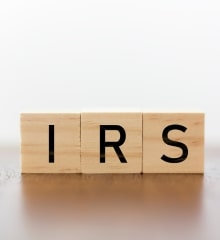Rebuilding Your Credit After Declaring Bankruptcy
Some put off filing bankruptcy, or decide against it entirely, just because they are worried about their credit score. While this may be a valid
concern in some cases, it normally doesn’t justify dismissing the idea of bankruptcy entirely.
The benefits of bankruptcy often outweigh its potential effects on the filer’s
credit score. Additionally, rebuilding credit is much
easier when you aren’t buried under a mountain of debt.
Bankruptcy often results in an immediate drop in credit score. However, most people who are at the point of declaring bankruptcy have already
had their credit seriously impacted. Continuing to carry massive debt loads while missing payments isn’t going to help your credit score. In
fact, the sooner you declare bankruptcy, the faster you can start rebuilding your credit.
If your debt is discharged in a Chapter 7 bankruptcy, you are getting a new start. Your
credit score may be low, but you now have a chance to build it up by using your credit responsibly. If credit cards got you into your financial
problems in the first place, learning to manage your finances is important. Because you won’t be given large amounts of credit right away, you
will have time to adjust and avoid reliance on credit. With responsible use, your credit score will climb.
If you file for Chapter 13 debt reorganization, you will still be making payments. Your mortgage payments and car payments will likely be brought
current and will stay current for the duration of your repayment plan. Your other creditors will be receiving regular payments and some of your
debts will be paid in full. The discharge of debt at the end of your agreement will leave you in a better financial situation. This means you will
be able to pay down your mortgage and hopefully avoid a reliance on credit.
Once you begin making payments on time, this will be reflected in your credit score. You may be offered new credit or you may seek a secured credit
card backed up by a deposit. If you use this credit responsibly, it can also help rebuild your score. Be careful not to max out any new credit cards.
Only use them when you are sure you can pay the lender back. Paying your bill in-full every month is a great step towards helping your credit.
Take advantage of the free credit reports that the reporting bureaus are obligated to give you. Review them for mistakes and fix any issues.
For more information on fixing your debt problems and establishing credit, contact DebtStoppers. Our bankruptcy attorneys help individuals and
families find debt solutions that work. To schedule a free consultation, call us today at 678-673-2142 or
contact us online
.


